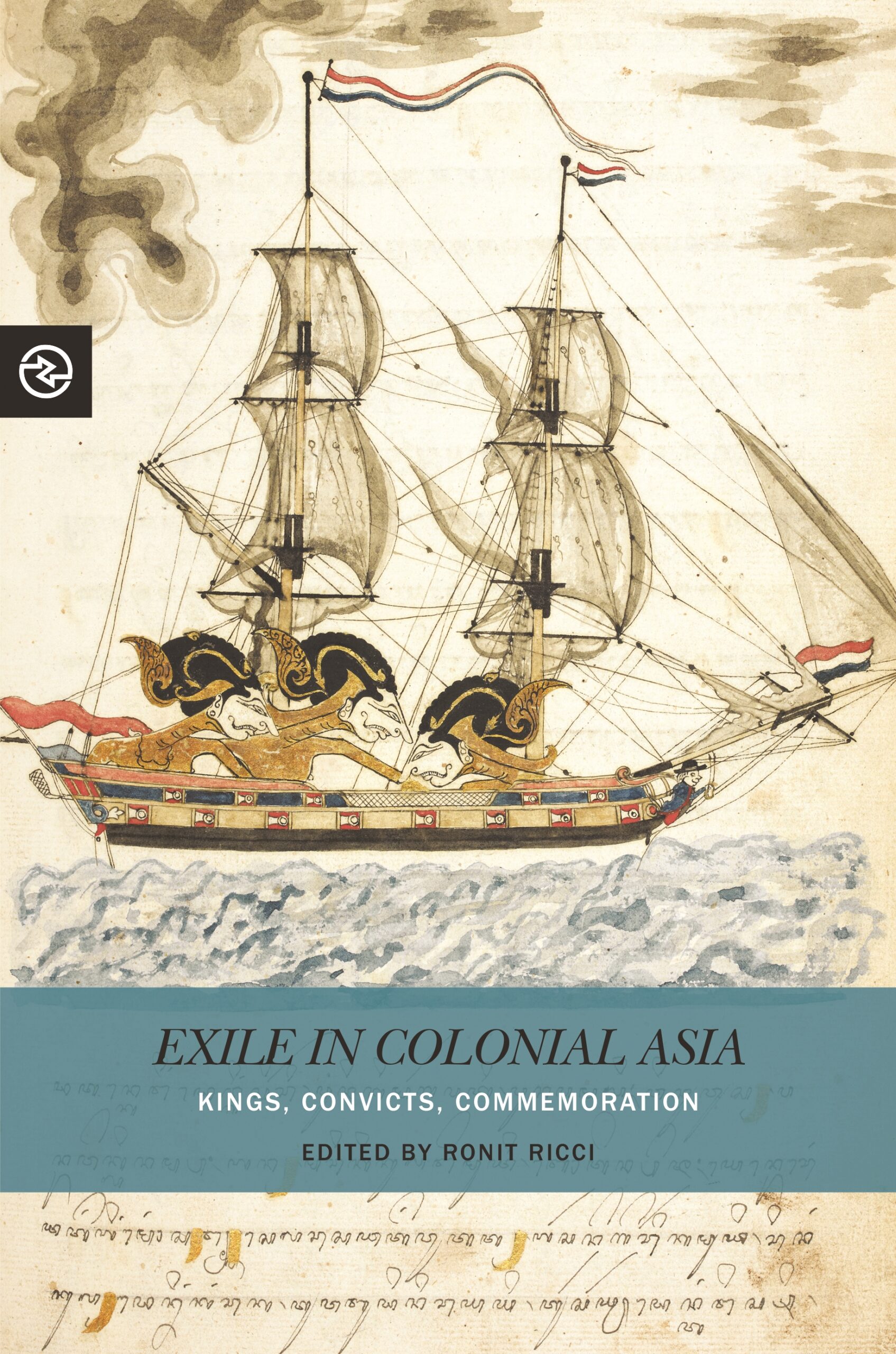Exile in Colonial Asia: Kings, Convicts, Commemoration
Awards
- Winner of the International Convention of Asian Studies (ICAS) Book Prize (various categories), 2017
- About the Book
-
Exile was a potent form of punishment and a catalyst for change in colonial Asia between the seventeenth and early twentieth centuries. Vast networks of forced migration supplied laborers to emerging colonial settlements, while European powers banished rivals to faraway locations. Exile in Colonial Asia explores the phenomenon of exile in ten case studies by way of three categories: “kings,” royals banished as political exiles; “convicts,” the vast majority of those whose lives are explored in this volume, sent halfway across the world with often unexpected consequences; and “commemoration,” referring to the myriad ways in which the experience and its aftermath were remembered by those exiled, relatives left behind, colonial officials, and subsequent generations of descendants, devotees, historians, and politicians. Intended for a broad readership interested in the colonial period in Asia (South and Southeast Asia in particular), the volume encompasses a range of disciplinary perspectives: anthropology, gender studies, literature, history, and Asian, Australian, and Pacific studies.
In addition to presenting fascinating, little-known, and varied case studies of exile in colonial Asia and Australia, the chapters collectively offer a sweeping, contextualized, comparative approach that links the narratives of diverse peoples and locales. Rather than confining research to the European colonial archives, whenever possible the authors put special emphasis on the use of indigenous primary sources hitherto little explored. Exile in Colonial Asia invites imaginative methodological innovation in exploring multiple archives and expands our theoretical frontiers in thinking about the interconnected histories of penal deportation, labor migration, political exile, colonial expansion, and individual destinies.
- About the Author(s)
-
Ronit Ricci, Editor
Ronit Ricci is associate professor of Asian Studies at The Hebrew University of Jerusalem and The Australian National University.Anand A. Yang, Series Editor
Kieko Matteson, Series Editor
Contributors
- Clare Anderson
- Robert Aldrich
- Anand A. Yang
- Ronit Ricci
- Sri Margana
- Timo Kaartinen
- Jean Gelman Taylor
- Carol Liston
- Lorraine M. Paterson
- Penny Edwards
- Reviews and Endorsements
-
- Exile in Colonial Asia succeeds admirably in bringing attention to the “global dimensions of colonial exile”. The volume further excels in synthesising the experience and memory of exile through the eyes of both colonial authorities and the exiles themselves. . . . For those seeking novel historiographical approaches to transnational history, Exile in Colonial Asia offers excellent insights on the role of forced migration in imperial endeavour.
—Journal of the Royal Asiatic Society - Exile in Colonial Asia provides the humanism touch which is not often felt in European scholarly works on the history of European colonialism. In this sense, Ricci’s and Margana’s contributions have added value due to the use of an extensive exploration of indigenous sources, such as the Javanese Babad Kartasura (The chronicle of Kartasura), Babad Mangkudiningratan (The chronicle of Mangkudiningratan) and aforementioned personal letters of victims, as their foremost sources. It is fitting that this book was awarded the ‘Edited volume Accolade’ at the ICAS 10 convention in Chiang Mai, Thailand (20-23 July 2017) with the comment: ‘A fascinating global narrative of differently situated subjects forced to move’. The book evokes the hope of more scholarly works to come, to tell the stories of many other colonial exiles.
—New Books Asia - This engaging volume of 10 essays illustrates the many rewards of recuperating the meanings of exile in colonial Asia. Edward Said has evocatively described the solitude of exile as emblematic of our modern age of homelessness. . . . In the meantime, this elegant volume is insightful about the relationship between history, mobility and exile. For Edward Said, the zone of banished provided an ethical position from which to critique the excessive ascription of mass society. Exile in Colonial Asia takes a different approach by positioning the condition of exile as a site of struggle, worked over recurrently in the imaginaries of nations, empires and social groups. It is filled with wonderful detail and has innovatively unearthed sources in many languages, official and commemorative, that will delight its readers.
—The Indian Economic and Social History Review - . . . the essays in this volume provide exceptional insights into the nature, experience, and legacies of exile. The sensitivity to archive, to historical context and cultural meaning, is exceptional, and the essays work together to provide a challenging basis for future research and analysis. For the study of modern Asia as an interconnected domain of authority, mobility, and experience, for the history and literature of empire, nation, and selfhood, these essays break significant new ground.
—Journal of Social History
- Exile in Colonial Asia succeeds admirably in bringing attention to the “global dimensions of colonial exile”. The volume further excels in synthesising the experience and memory of exile through the eyes of both colonial authorities and the exiles themselves. . . . For those seeking novel historiographical approaches to transnational history, Exile in Colonial Asia offers excellent insights on the role of forced migration in imperial endeavour.
- Supporting Resources
-





